INTRODUCTION
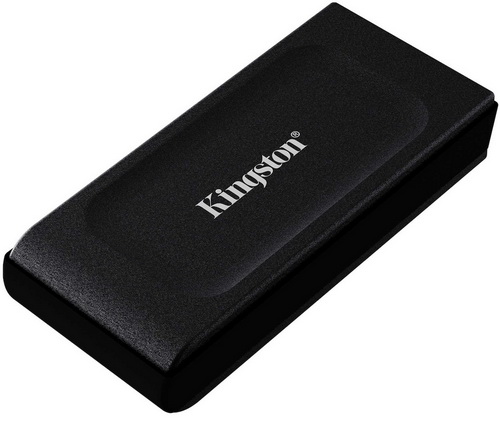
Whenever i think about portable solid state drives there are two things i mostly care about, size and performance. Yes, other things like storage capacity, enclosure durability, connectivity and even warranty are also very important but at least for me size and performance always come first. A couple of years back Kingston released their very first USB 3.2 Gen 2x2 portable SSD called the XS2000 which ended up being an overall success both due to its size and very good performance levels (up to 2000MB/s). Still excluding all the recent mid/high-end motherboard models USB 3.2 Gen 2x2 (USB4 is the obvious successor to that right now) is not widely used and so in order to grab a larger piece of the market Kingston took a step back by just releasing the USB 3.2 Gen 2 XS1000 line of portable SSDs.
Kingston Technology Europe Co LLP and Kingston Technology Company, Inc., are part of the same corporate group (“Kingston”). Kingston is the world’s largest independent manufacturer of memory products. From big data, to laptops and PCs, to IoT-based devices like smart and wearable technology, to design-in and contract manufacturing, Kingston helps deliver the solutions used to live, work and play. The world’s largest PC makers and cloud-hosting companies depend on Kingston for their manufacturing needs, and our passion fuels the technology the world uses every day. We strive beyond our products to see the bigger picture, to meet the needs of our customers and offer solutions that make a difference. To learn more about how Kingston Is With You, visit Kingston.com.
The brand new XS1000 USB 3.2 Gen 2 Portable SSD by Kingston is currently available in just 1/2TB capacities and strangely enough it's also based on the quad-channel (32 CEs) SM2320G NAND flash controller by Silicon Motion just like its faster predecessor, the XS2000. Now for earlier portable SSD models the obvious culprit here would normally be the USB controller/interface but since the SM2320G is an USB 3.2 Gen 2x2 NAND flash controller my guess is this has to do either with the controller’s firmware (most likely scenario) or the 3D TLC NAND flash modules Kingston has used this time over. Whichever the case Kingston advertises the XS1000 as being able to reach just over half the speeds of the XS2000. As for the SM2320G controller once again it fully supports Silicon Motion's latest NANDXtend ECC end-to-end data path protection but even though it also supports real time AES 256-bit encryption for full compliance with the Trusted Computing Group - TCG Opal 2.0 specification the XS1000 doesn't carry that feature.
SPECIFICATIONS AND FEATURES
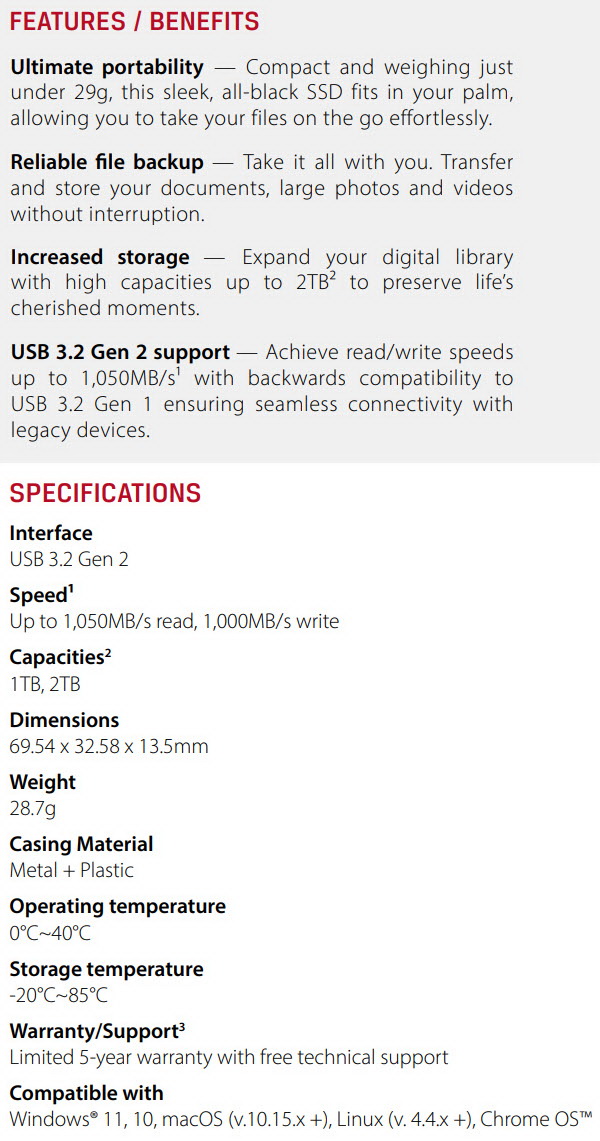
PACKAGING AND CONTENTS
As usual the front of the box has a large product picture, company logo, product capacity and host interface.
Listed at the rear are the contents of the bundle, product description, OS compatibility and contact information for Kingston.
Aside the XS1000 just a USB-A to USB-C cable is placed inside the box.
THE XS1000 2TB
Measuring 69.54mm in length, 32.58mm in width and 13.5mm in thickness the black enclosure of the XS1000 is very compact.

 Here you can see a quick size comparison with the recently reviewed ZX20 model by Netac.
Here you can see a quick size comparison with the recently reviewed ZX20 model by Netac.
Just the USB-C connector and the activity LED are placed at the front of the drive.
A sticker with the product serial number, barcode and some certifications is placed at the bottom.
The XS1000 has an almost identical body as the XS2000 so taking a look inside wasn't hard.
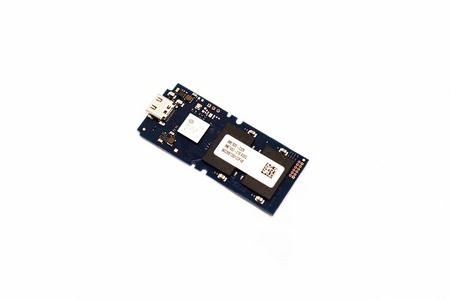
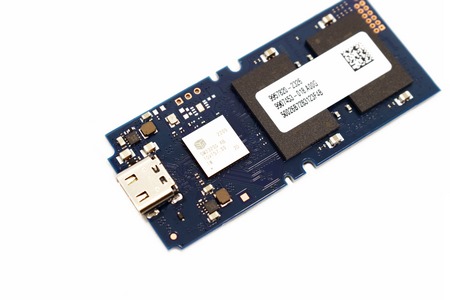 So on one side of the PCB, we find the Silicon Motion SM2320G NAND controller together with two 3D TLC NAND flash modules.
So on one side of the PCB, we find the Silicon Motion SM2320G NAND controller together with two 3D TLC NAND flash modules.
Just two 3D TLC NAND flash modules are placed on the opposite side.
TEST BED
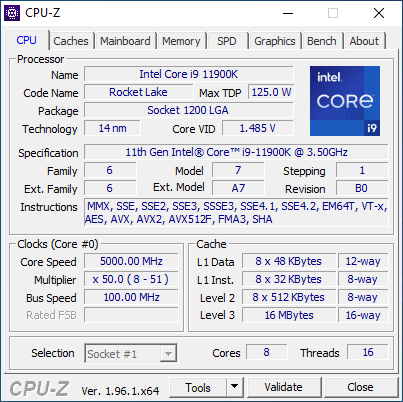

TESTING METHODOLOGY
Solid state drives are basically the same as USB flash drives and so we’re using almost the same testing methodology to successfully record achieved read & write performance numbers in our charts*. The benchmark suites used are HD Tach RW (Read Speeds / Long Bench 32mb Zone Testing), HD Tune Pro (Read / Write speeds), Sisoftware Sandra Titanium 2020 (Read / Write speeds), AIDA64 Engineer Edition (Average Linear / Random Read & Write speeds), Crystal Disk Mark 6.0.2 (2GB Read / Write speeds) and finally ATTO 4.00.0F2 (Max Read / Max Write speeds). Every test is repeated a total of 6 times after which the average performance numbers are recorded into our charts (0 = we were unable to complete that test).
All tests are performed with our main rig running Microsoft Windows 10 Pro installation on a CORSAIR MP510 960GB NVME SSD* with all updates installed up to the day we started tests.
* Since August 2019 for portable SSD tests I started using the X299 test rig.
** For USB 3.2 Gen2x2 portable SSDs I’ll be using the Z590 DARK based test rig.
TEST RESULTS - AIDA64 / ATTO
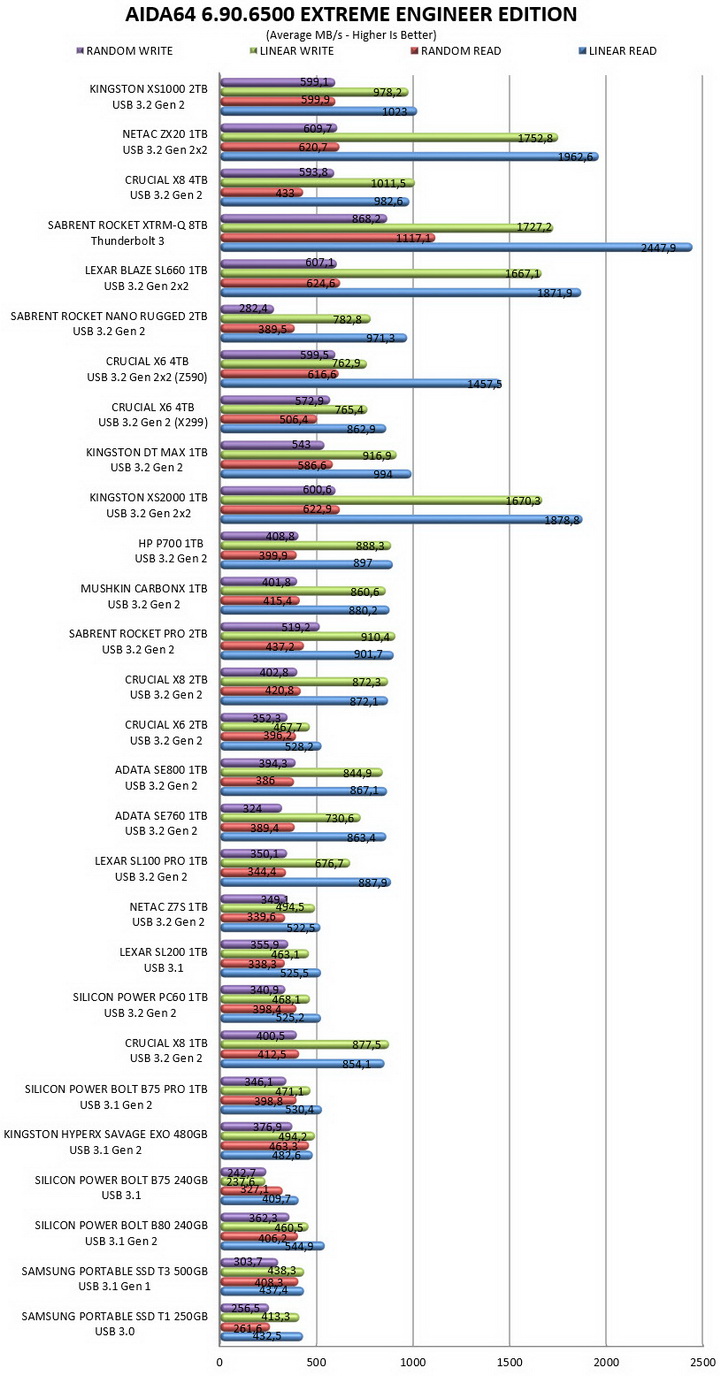

TEST RESULTS - HD TACH RW / HD TUNE PRO
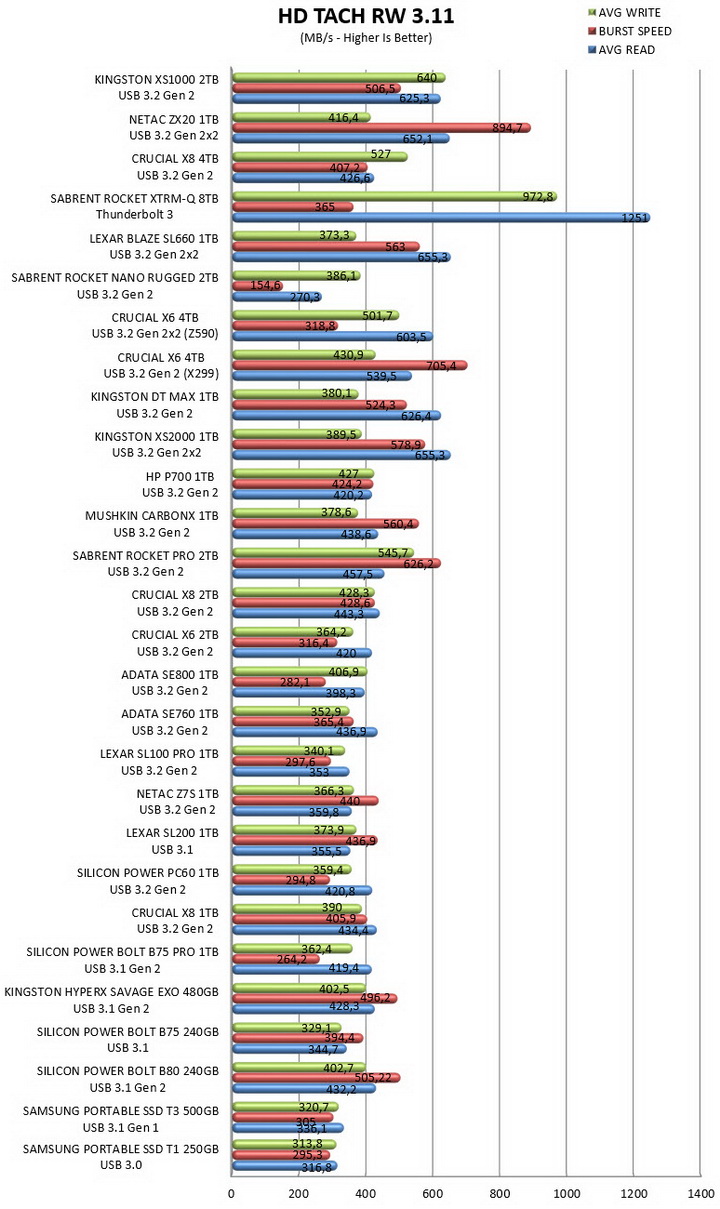

TEST RESULTS - SISOFTWARE SANDRA TITANIUM / CRYSTAL DISK MARK


CONCLUSION
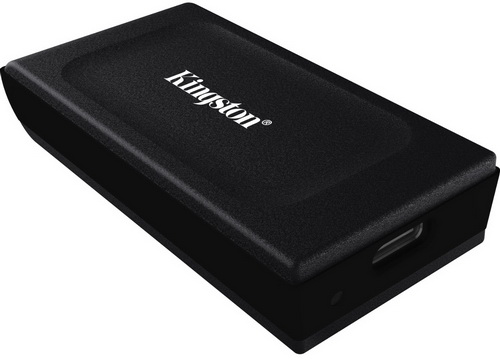
When I opened up the enclosure of the XS1000 and found out that it uses the same exact controller as the XS2000 I couldn't figure out why Kingston would effectively hold back its performance. Yes, USB 3.2 Gen 2x2 is not that common for an interface (nor USB4 for that matter) but it’s still backwards compatible and so everyone would be able to use it. Now I do realize that Kingston already has the XS2000 so my guess is all this was done to cut down costs and thus make available something more affordable to the masses (Silicon Motion could have charged Kingston less for their controller since it’s set at USB 3.2 Gen 2?). Still the end result is not bad at all with the XS1000 2TB easily surpassing 1000MB/s in most of the tests (placing it in the top 5 of my portable SSD charts). Again, just like with the XS2000 I was hoping Kingston would use a more robust enclosure (aluminum would be nice) but I do realize that would up cost and weight by quite a bit (worth pointing out is that the rubber sleeve bundled with the XS2000 is not bundled with the XS1000).
Currently retailing for just USD108.72 inside the USA (Amazon.com) and for 109.31Euros inside the EU (Amazon.de) the XS1000 2TB USB 3.2 Gen 2 Portable SSD by Kingston is roughly 30% cheaper compared to its predecessor, the XS2000 2TB. This of course is a big deal especially if you don’t plan on using an USB 3.2 Gen 2x2 or USB4 compatible motherboard any time soon. Overall, there’s nothing bad I can say about the XS1000 portable SSD by Kingston, yes, it does feel strange that they limited its performance but they did so to reduce costs and since they more than managed exactly that and the drive is still plenty fast it does deserve the Golden Award.

PROS
- Very Good Performance (USB 3.2 Gen 2)
- Compact & Lightweight
- Price (For Some)
- 5 Year Limited Warranty
CONS
- None

 O-Sense
O-Sense





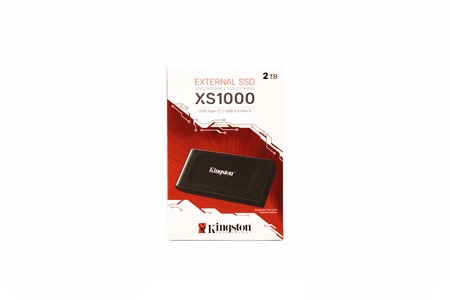
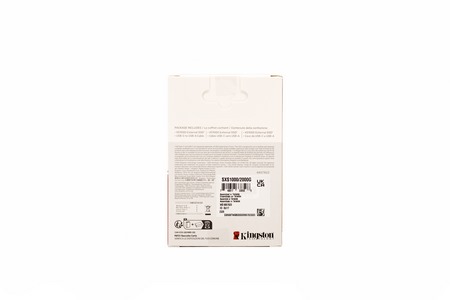


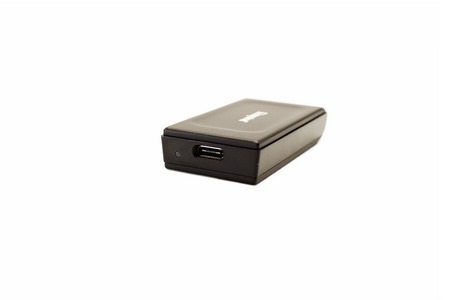
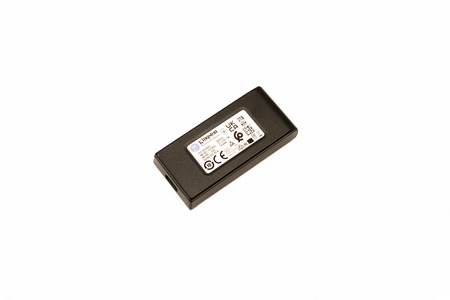
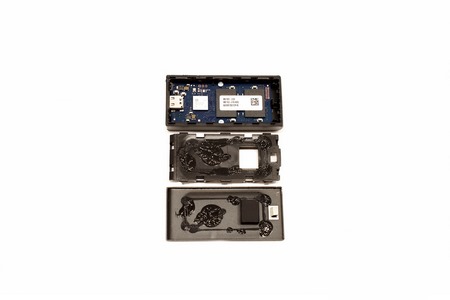



.png)

